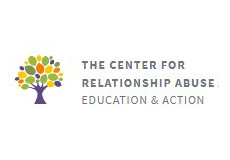Sorry, I Had To Save Myself Before I Could Save Anybody Else
This digital property was developed by Click Star Marketing to help support the victim financially, repair the tension between her family, reconnect her with he the ones who love her and provide answers so that she may gain the strength to find herself, recover her soul and find peace of mind once and for all.
Love is when you give someone the power to destroy you, and you trust them not to.
Abuse is when that someone uses this power to isolate, threaten and control you.
-
What is woman abuse?
Woman abuse is defined as the intent by a man to intimidate and control his female partner, either by threat or by physical force on her. The purpose of abuse is to induce fear and gain control. Underlying all abuse is a power imbalance between the offender and victim. The offender knows they have less power in the relationship therefor they resort to desperate means of gaining control.
-
The warning signs
If you are concerned about someone you think is being abused, here are some of things to look for.
Is she apologetic and does she make excuses for his behaviour?
Is she a different person when he’s around?
Does she seem to be sick and/or miss work more often?
Does he check up on her all the time?
Does he try to keep her away from you?
Does he act as if he owns her? -
Things to Consider:
- Know that you are not to blame for your partner’s abusive behavior.
- Recognize that you have the right to make your own decisions, in your own time, and that dealing with any form of abuse may take time.
- Recognize that emotional abuse should be taken seriously.
- Know that emotional abuse can escalate to physical violence.
- Find people to talk to that can support you. Consider getting individual counseling from professionals who are trained about abusive relationships and will hold your partner responsible for the abuse you are experiencing.
- Do not give up if community professionals are not helpful. Keep looking for someone that will listen to you and take emotional abuse seriously.
- Trust yourself and your own experiences. Believe in your own strengths. Remember offenders resort to abuse because they are desperate to gain power over you. If they really possessed this strength over you it wouldn’t require any desperation to overpower you.
-
Victim Blaming
-
Abusive behavior is the abuser’s choice
Despite what many people believe, domestic abuse is not due to the abuser’s loss of control over his or her behavior. In fact, abusive behavior is a deliberate choice made by the abuser in order to control you.
Abusers use a variety of tactics to manipulate you and exert their power:
Dominance – Abusive individuals need to feel in charge of the relationship. They will make decisions for you and your family, tell you what to do, and expect you to obey without question. Your abuser may treat you like a servant, child, or even as his or her possession.
Humiliation – An abuser will do everything he or she can to make you feel bad about yourself or defective in some way. After all, if you believe you’re worthless and that no one else will want you, you’re less likely to leave. Insults, name-calling, shaming, and public put-downs are all weapons of abuse designed to erode your self-esteem and make you feel powerless.
Isolation – In order to increase your dependence on him or her, an abusive partner will cut you off from the outside world. He or she may keep you from seeing family or friends, or even prevent you from going to work or school. You may have to ask permission to do anything, go anywhere, or see anyone.
Threats – Abusers commonly use threats to keep their partners from leaving or to scare them into dropping charges. Your abuser may threaten to hurt or kill you, your children, other family members, or even pets. He or she may also threaten to commit suicide, file false charges against you, or report you for previous mistakes you may have made.
Intimidation – Your abuser may use a variety of intimidation tactics designed to scare you into submission. Such tactics include making threatening looks or gestures, smashing things in front of you, destroying property, hurting your pets, or putting weapons on display. The clear message is that if you don’t obey, there will be consequences.
Denial and blame – Abusers are very good at making excuses for the inexcusable. They will blame their abusive and violent behavior on a bad childhood, a bad day, and even on the victims of their abuse. Your abusive partner may minimize the abuse or deny that it occurred. He or she will commonly shift the responsibility on to you: Somehow, his or her violent and abusive behavior is your fault.
-
What is domestic abuse?
Domestic abuse is a pattern of behaviour used by one person to gain power and control over another person with whom he/she has or has had an intimate relationship. The behaviour includes sexual, emotional, and psychological intimidation, verbal abuse and stalking. Domestic abuse could escalate to domestic violence when the victim decides to separate from the abuser.
-
Understanding emotional abuse
Not all abusive relationships involve physical violence. Just because you’re not battered and bruised doesn’t mean you’re not being abused. Many men and women suffer from emotional abuse, which is no less destructive. Unfortunately, emotional abuse is often minimized or overlooked—even by the person being abused.
The aim of emotional abuse is to chip away at your feelings of self-worth and independence—leaving you feeling that there’s no way out of the relationship, or that without your abusive partner you have nothing.
Emotional abuse includes verbal abuse such as yelling, name-calling, blaming, and shaming. Isolation, intimidation, and controlling behavior also fall under emotional abuse. Additionally, abusers who use emotional or psychological abuse often throw in threats of physical violence or other repercussions if you don’t do what they want.
You may think that physical abuse is far worse than emotional abuse, since physical violence can send you to the hospital and leave you with scars. The scars of emotional abuse are very real, though, and they run deep. In fact, emotional abuse can be just as damaging as physical abuse—sometimes even more so.
-
What is an abusive relationship like?
- Do you feel that something is wrong with your relationship, but you don’t know how to describe it?
- Do you feel that your partner controls your life?
- Does your partner stop you from questioning important aspects of your life?
- Do you feel that your partner does not value your thoughts or feelings?
- Will your partner do anything to win an argument, such as put you down, threaten or intimidate you?
- Does your partner get angry and jealous if you talk to someone else? Are you accused of having affairs?
- Are you told that no one else would want you, or that you are lucky your partner takes care of you?
- Do you have to account for every moment of your time?
- Does your partner blame you for everything that goes wrong?
-
How The Abuser Keeps Control
Many people ask “Why doesn’t the victim leave? Why does the victim stay?”–it is not that simple. It is important to understand that there are many barriers to safety in an abusive relationship. Leaving is often dangerous and there are many factors an abused partner must consider in the analysis of how to respond to an abusive partner. The better question is “Why does the abuser do this and how can I help the survivor gain access to safety?” The reality is that the most dangerous time for a survivor/victim is when she leaves the abusive partner; 75% of domestic violence related homicides occur upon separation and there is a 75% increase of violence upon separation for at least two years. These concerns are very real and must be addressed with safety planning. The following are common barriers:
- Isolation: from friends, family, community support, resources, as abusers often attempt to cut off survivors from support networks as a control mechanism
- Children: fear for their safety if abuser has threatened to hurt them if she leaves, custody concerns (such as the abuser gaining custody which still occurs in 50% of cases), child abuse that has occurred as a result of trying to leave in the past.
- Fear: of retaliation; of being killed; of the abuser hurting loved ones; of being stalked; of not being believed; of unsupervised visits with the abuser putting children at risk
- Physical harm that occurred after trying to leave or after having called the police or after having sought medical attention.
- Threats: the abusive partner may threaten to commit suicide or hurt their partner/children, other loved ones and/or pets, threaten to “out” their partner to family or coworkers, etc.
- Lack of resources or information about available resources such as lack of transportation to services or lack of access to the internet.
- Hope/belief that partner will change, often resulting from manipulative tactics by the abuser. A connection to partner’s well-being: fear that partner will be arrested, imprisoned, deported etc. which may have consequences for retaliation, finances, and children.
- Failure of the criminal justice system: with a very low prosecution rate, survivors are not likely to pursue prosecution when they will have to be revictimized in court without any meaningful results. Perpetrators often threaten the partner if they don’t recant and even when victims do “press charges,” it often only leads to a slap on the wrist for the perpetrator.
- Culture/ religion/ family pressures to stay together
- Shame or belief that the abuse is their fault, largely because of societal victim blaming.
-
Warning signs of abuse in others
People who are being abused may:
Seem anxious to please their partner
Go along with everything their partner says and does
Check in often with their partner to report where they are and what they’re doing
Receive frequent, harassing phone calls from their partner
Talk about their partner’s temper, jealousy, or posessiveness
People who are being physically abused may:Have frequent injuries, with the excuse of “accidents”
Frequently miss work, school, or social occasions, without explanation
Dress in clothing designed to hide bruises or scars (e.g. wearing long sleeves in the summer or sunglasses indoors)Warning signs of isolation:
People who are being isolated by their abuser may:
Be restricted from seeing family and friends
Rarely go out in public without their partner
Have limited access to money, credit cards, or the car
People who are being psychologically abused may:Have very low self-esteem, even if they used to be confident
Show major personality changes (e.g. an outgoing person becomes withdrawn)
Be depressed, anxious, or suicidal
Narcissistic Abuse
Narcissist are individuals with an exaggerated sense of self having a grandiose ego of superiority over others , a strong sense of entitlement and are constantly in need of attention, affection, admiration, and praise. They seek out to find and target those who are most empathetic, nurturing, and sympathetic to their portrayal of having a troubled past, riddled with bad decisions, and bad luck. However, as victims later learn this is all too far from the truth as the narcissist have hidden lifestyles, secretive behaviors, mental disorders, that wreck havoc upon their primary sources of supply in which a trail of destruction is left behind. They become overly sensitive to narcissistic injury which is any perceived threat (real or imagined) to the narcissist’s self-esteem or self-worth. In order to maintain their illusion and protect their ‘false self’ they seek narcissistic supply from unsuspecting victims.
Unfortunately, victims are unaware of the dangers that exist in becoming involved with a narcissist until it’s too late and often after years of being subjected to trauma, abuse, and depression which may result in PTSD( Post Traumatic Stress Disorder) CD (Cognitive Dissonance) &, Stockholm Syndrome (Much like prisoners of war victims are left feeling they have to defend their abuser , love their abuser, despite years of captivity, isolation, deprivation, and abuse). Narcissist are not easily detected and often appear popular, coy, very polite, professional and courteous. They gain the victims trust by mirroring and projecting the traits of those they wish to emulate.
The narcissist views people as objects which can feed their needs (known as ‘sources of narcissistic supply’). The narcissist will use any tactic, without guilt, empathy or conscience, to make sure they get their narcissistic supply and their needs are met. Narcissistic supply comes from public attention such as fame, celebrity, notoriety, or infamy or private attention such as admiration, flattery, acclaim, fear, or even repulsion. Regular bearers of narcissistic supply include the spouse, children, friends, colleagues, partners and clients. Anything that acts as a status symbol that attracts attention and admiration for the narcissist is narcissistic supply, for example, a flashy car, expensive property, designer clothes, a beautiful mistress, being a member of a church, cult, club, or a business.
With an inflated sense of their own superiority, power and control, the narcissist renders themselves susceptible to all sorts of obsessions, compulsions, and addictions, for example, addiction to: narcissistic supply, grandiosity, control, power, rage, perfectionism, attention etc. The devastating impact of these addictions on their significant others can result in Narcissistic Victim Syndrome. Most victims present with no idea about what has happened to them. Narcissistic abuse is insidious because the abuse is covert, cunning and indirect. Narcissists go to great pains to avoid being observed publicly as being abusive.
Victims present themselves when they feel like they can’t cope. They are unaware that they have been living in a war zone. No-one has mentioned Narcissistic Personality Disorder (NPD) or narcissistic abuse to them. Victims of this narcissistic abuse often display a set, or cluster, of symptoms due to this physical, mental, emotional or spiritual abuse. A cluster of symptoms usually develop in the victim. Many are the symptoms of trauma (avoidance behaviour, loss of interest, feeling detached, sense of a limited future, sleeping or eating difficulties, irritability, hyper-vigilance, easily startled, flashbacks, hopelessness, psychosomatic illnesses, self-harming, thoughts of suicide etc). Narcissistic abuse victims express feelings of humiliation and shame, and apt to self-blame. They have learned to take responsibility for the narcissist’s behaviour because they are constantly told the problem is their fault. Some victims develop Stockholm Syndrome and want to support, defend, and love the abuser despite what they have gone through.
Victims tend to ‘dissociate’ or detach from their emotions, body, or surroundings. Living in a war zone where all forms of power and control are used against you (threats, intimidation, emotional, physical and mental abuse; isolation, economic abuse, sexual abuse, coercion, control etc), the threat of abuse is always present. Dissociation is an automatic coping mechanism against overwhelming stress. Victims are often victimized by more than one person. They often internalize that something is wrong with them, that they deserve this kind of abuse, and then resign themselves to their fate. Victims may not have reached their potential in their personal or professional lives because they always have to stand in the shadow of their aggressor, and not upstage them. They learn to live in the shadows without knowing why.
Victims of narcissistic abuse often appear uncertain of themselves, constantly seeking clarification that they haven’t made a mistake or misheard something. Confidence may be so low that they have trouble making simple decisions. Gradually, the victim cannot trust their own perceptions and doubt themselves. This often leads to depression. Broken and unable to trust themselves, they isolate themselves further. The victim now doubts everything about themselves, their thoughts and opinions, their ideas and ideals. They become co-dependent on the abuser for their reality.
Victims need validation and education about what has happened to them. They need information about the medical condition of Narcissistic Personality Disorder and its toxicity in relationships. They need education about how they have contributed to their situation through co-dependence. They need therapy to deal with symptoms. They will need support to remove themselves from their narcissistic relationship, and to not repeat the cycle of abuse in their next relationship. One of their greatest challenges may come from not being believed by significant others, either because these others have not seen the private face of the narcissist or because they themselves are in the narcissist’s thrall.
Often times, victims have no idea they are even being manipulated, deceived, brainwashed by these toxic persons such as the narcissist until they are significantly involved within the relationship. Tactics such as love bombing, gaslighting (technique of brain washing used to instill confusion causing victims to question their own memory), and triangulation(creating an aura of desirability to draw victims closer) are used to win the hearts of these unsuspecting supplies and targets.
Narcissists are very deceiving, they are masters at utilizing mind games, they will lie about the most basic mundane things simply to gain the most attention, benefit, and fit their own selfish needs and wants. Victims are often known to feel a loss of self after years of abuse, denial, self questioning behaviors, and self examination of their own judgement. Narcissists have a plan from the very beginning of the honeymoon stage, to the love bombing ( use of flattery, declarations of love and romantic encounters to attract victims) and they have no remorse or empathy for those they abuse. Victims will never get the apology that they deserve.
They often are unable to figure out that they are being manipulated until it’s too late often at the detriment to their own personal lives and those closest to them. Many victims are left without the basics and have no foundation upon which to rebuild their lives. After years of abuse and mind games they may be questioning their ability to leave. They may have been told if they leave the abuser will harm them or further isolate them from family and friends preventing their escape. The years of abuse may have them feeling depressed, alone, and emotionally drained. Victims may be unwilling to change their situation but in fact they may be physically exhausted and unable to help themselves. Sadly, victims are deceived into believing the relationship they had would be fulfilling, rewarding, loving, nurturing, and kind.
Victims are blamed, made to feel crazy, second guessing their own actions as a direct result of the false accusations labeled against them by the narcissist concerning something they did or didn’t do. Narcissist are very good at twisting the truth, exaggerating the facts, and creating drama for their own personal gains. Often times the narcissist will surround themselves with enablers, harem, or loyal followers who often don’t wish to admit they too are victims or may think they are supporting a fake persona who is ultimately the narcissist.
So what can someone do to help those who might find themselves in such precarious situations. First and foremost always believe the victims. Never blame them or discount their stories. Let them know they are not alone. Allow them the opportunity to speak, and quietly listen being their supportive guidance. When victims tell their story it’s often for reasons such as validation, approval, acceptance, acknowledgement, understanding, love, and support. Never make generalizations about the relationship or inferences concerning the break up. This is not a “typical breakup” . It’s not simply a bruised ego or a broken heart. The relationship was based upon a foundation of lies and deceit that was enhanced with an evil plan of mind games and trickery from a truly sick individual with a mental personality disorder. The recovery after being devalued and discarded doesn’t involve simply getting over a few “hardships” that everyone has had to endure in life.
Narcissistic relationships involve years of fear, intimidation, degradation, humiliation, chastisement, beratement, lying, cheating, adultery, deceit, abuse, neglect, depression, isolation,& abandonment. Years of this type of brainwashing and mental torture leaves victims feeling as lost souls and having low self esteem, low confidence with a low self worth. Trust, confidence, and beliefs levels in oneself are left questionable.
Soul Recovery
Soul Recovery is great for people who have been through narcissistic abuse because this type of abuse is really a type of “soul rape”. You have lost pieces of your soul to the abuse and in order to be fully empowered in your life again you must reclaim those lost parts of yourself. We lose pieces of our soul through trauma, pain and abuse. At the time of the trauma a piece of ourselves gets stuck in that time and we lose part of our life force energy with that piece.
Soul Recovery is a process by which we regain those pieces of ourselves that have been lost. In order to experience life with passion and joy you must have all your pieces. This will allow you to step fully into your life purpose and do the work you have come here to do. This frees up your energy from subconscious memories that have traveled with you for ages preventing you from being fully present in the here and now.










